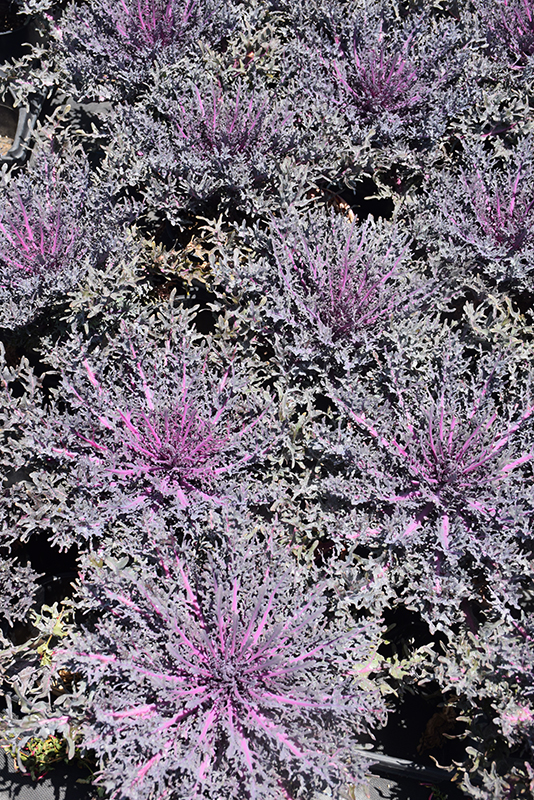Plant Finder Tool
Peacock™ Red Kale
Brassica oleracea var. acephala 'Peacock Red'
Height: 12 inches
Spread: 12 inches
Sunlight:
![]()
![]()
Hardiness Zone: (annual)
Other Names: Ornamental Kale, Flowering Kale
Group/Class: Peacock Series
Brand: Takii
Description:
This beautiful feather like variety produces sea green outer foliage with shades of pink in the center; perfect for garden landscapes as well as container planting; performs well in cooler conditions; edible leaves are bitter but make a great garnish
Edible Qualities
Peacock™ Red Kale is an annual vegetable plant that is typically grown for its edible qualities, although it does have ornamental merits as well. The deeply cut round bluish-green leaves with showy pink variegation can be harvested at any time in the season. The leaves have a bitter taste.
The leaves are most often used in the following ways:
- Eating When Cooked/Prepared
- Cooking
Planting & Growing
Peacock™ Red Kale will grow to be about 12 inches tall at maturity, with a spread of 12 inches. This fast-growing vegetable plant is an annual, which means that it will grow for one season in your garden and then die after producing a crop.
This plant can be integrated into a landscape or flower garden by creative gardeners, but is usually grown in a designated vegetable garden. It does best in full sun to partial shade. It does best in average to evenly moist conditions, but will not tolerate standing water. It is not particular as to soil pH, but grows best in rich soils. It is somewhat tolerant of urban pollution. Consider applying a thick mulch around the root zone over the growing season to conserve soil moisture. This is a selected variety of a species not originally from North America.
Peacock™ Red Kale is a good choice for the vegetable garden, but it is also well-suited for use in outdoor pots and containers. It is often used as a 'filler' in the 'spiller-thriller-filler' container combination, providing a canvas of foliage against which the thriller plants stand out. Note that when growing plants in outdoor containers and baskets, they may require more frequent waterings than they would in the yard or garden.

